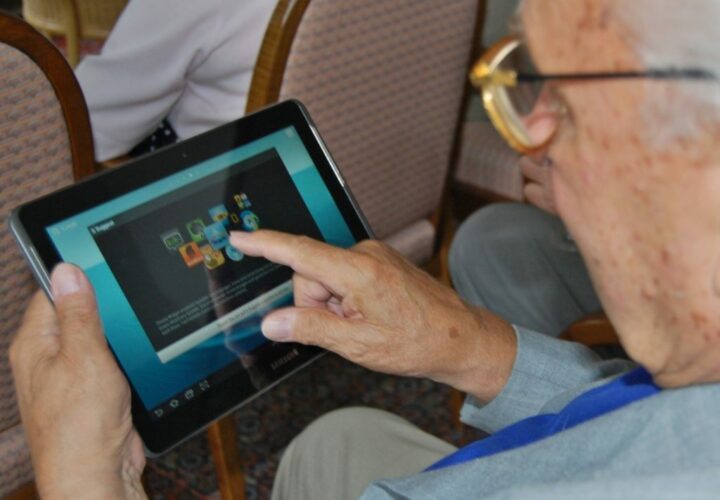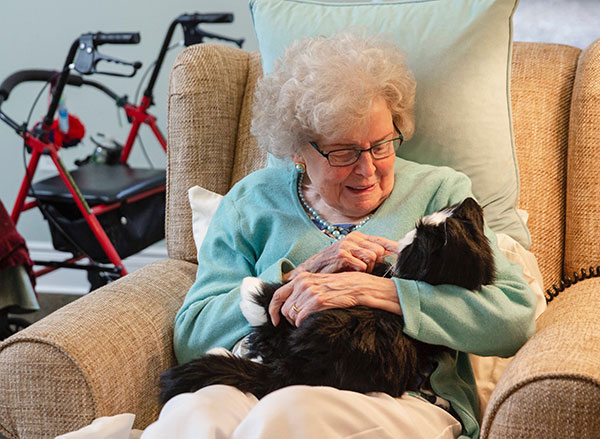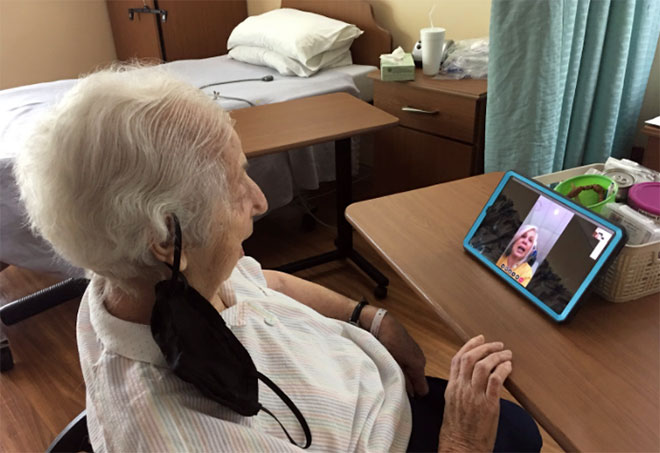Tech gadgets to help ease loneliness: Our technology picks for people living with dementia
Caring for someone who is living with dementia during a pandemic can feel like wandering into uncharted territory without a flashlight. Many are feeling isolated and apathetic, coping with disrupted routines as they navigate a new world of health risks and social distancing. To help caregivers and families navigate this challenging time, Being Patient has put together a list of vetted products recommended by our community of readers to help ease loneliness and keep loved ones in better spirits.
Robotic Pets Offer a Low-Maintenance Sense of Connection
Research shows that animal-assisted therapy may reduce loneliness and agitation of people living with Alzheimer’s and related dementias. Robotic pets can present as attractive alternatives for those with cognitive decline and physical impairment who are seeking companionship during these isolating times. Scientists have found that robotic pets may provide therapeutic benefits, serving as more accessible alternatives to traditional pet therapies for people with dementia.
“It’s soothing and calming,” Ageless Innovation Co-founder and CEO Ted Fischer told Being Patient. “It’s not demanding anything of you other than your love and attention. And it’s giving you something in return.”
There is an array of choices — and prices — to choose from, including Ageless Innovation’s “Joy for All” line (around $100 to purchase) with robotic dogs
and cats
that react to touch, sound, and motion. The options become increasingly high-tech and surreal: PARO ($6,500) is a baby harp seal with tactile sensors and a playful moan; AIBO ($2,900) is a puppy with glimmering LED eyes and Wi-Fi-capable built-in cameras.
“Beyond being a tangible and observable companion that has an impact on the immediate environment of older adults, [the robotic pet is] also a simple, intuitive and ‘normal’ entity that serves as an incredible and powerful interface to communicate with older adults and even better – to support an adoption of technology for their health and well-being,” Claudia Rebola, a researcher and professor at the University of Cincinnati who studies older adults’ relationships with robotic pets, told Being Patient.
Music Players Help Provide Comfort
Music is also a powerful remedy for loneliness. “People with dementia are confronted by a world that is unfamiliar to them, which can cause disorientation and anxiety.” Jeff Anderson, M.D., Ph.D., associate professor in Radiology at the University of Utah Health, told Being Patient. “We believe music will tap into the salience network of the brain that is still relatively functioning.”
Similarly, a New York-based nonprofit, Music & Memory, has worked to connect people living with a wide range of cognitive conditions with the healing power of music. “Calming music can relieve anxiety,” Music & Memory Program Director Justin Russo told Being Patient. “In terms of agitation and anxiety in general, music focuses a person’s attention on something recognizable, which reduces the feeling of being overwhelmed and confused.”
This simple music player ($149.99) was designed for people living with dementia. For easy operation, it has only three controls, as well as preloaded music and an option to download personalized music.
Digital Photo Frames Help Ease Loneliness
Many friends and relatives are still searching for safe ways to stay connected to their loved ones living in senior care communities from afar.
Digital picture frames ($99.99) allow you to download or stream family photos and videos in real-time from your smartphone. And if your family member with dementia would like to reach you, this phone with photo buttons
($109.95) makes it easier to stay connected.
Being Patient is an editorially independent source of journalism funded by grants and donations from readers like you. This article contains Amazon Affiliate Links. Using these links to make a purchase helps us continue publishing.







